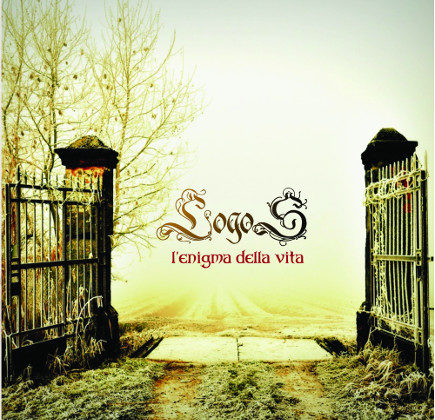Italian prog rockers LogoS have come up with a polished, well-produced album of mature prog compositions. The Lamb Lies Down on Broadway/Trick of The Tail-era GENESIS sounds and loud and clear engineering make this, to my ears, more akin to the Neo-Prog vein than RPI. The drums, keys, recording techniques and song structures feel so much like GENESIS 1975. 1. “Antifona” (2:03) (9/10) sets the mood for the album with dark, ominous synths and incidentals before a volume pedal-controlled guitar lays down some nice play. The song then bleeds into song
- “Venivo da un lung sonno” (9:09). The addition of bass and drum rhythm section to the opening song’s mood gives this a sound and feel like the foundation of “The Grand Parade of Lifeless Packaging” only with the sometimes lead guitar of David Gilmour. At 3:30 the song goes through a nice little shift with arpeggiated electric guitar notes. At 4:15 the entrance of the vocals of Luca Zerman brings to mind the voices of Ira Davies of ICEHOUSE, BRIAN FERRY, and even a little of THE DOORS’ Jim Morrison. At 5:30 it returns to its original instrumental format. It is a very nice, steady and engaging, mostly instrumental song. Nice guitar play and band support throughout. (9/10)
- “In fuga” (5:41) is a pleasant if straightforward and repetitive instrumental with keys and guitars trading solos throughout. (7/10)
- “Alla fine dell’ultimo capitol” (9:20) fades in just like a classic Lamb Lies Down on Broadway song–heavy in mellotron and volume controlled guitar. Once the intro has passed and the song enters into its lyric-supporting section it loses a bit of its edge and becomes somewhat “by the numbers” prog. The organ and guitar spurt beginning at 3:28 are “Watcher in The Skies” like for a second before devolving into support for a fairly straightforward blues way- pedal guitar solo. The rather slow straight-time base shifts but continues in a kind of plodding way until 6:32 when a slight shift allows the bass walking and guitar picking to weave and shine a bit. Nothing very compacted or exciting, though, even when the mellotron moves to the front and does a kind of ANEKDOTEN solo. The final minute is a rather simple synth supported vocal outro. Nothing too earth-shattering here. (8/10)
- “N.A.S.” (7:45) opens with a bouncy almost disco (bass line) rhythm foundation with some ‘heavy’ electric guitar power chords. At 1:28 the song slows down, settling into an industrial KC Red-like rhythmic foundation while an ARP-like synth solo slides around over the top. At 3:30 two guitars–one a FRIPP-like sustained, the other a light pizzicato jazz plucked–take over the leads. The Fripp-like guitar puts together an interesting, dissonant solo that takes us up to the five minute mark. Such PHIL COLLINS-like (“Supper’s Ready/Fly on a Windshield”) drumming! At 7:25 the song bursts into a mellotron crescendo of sound as the ARP-synth finishes its long solo. Odd song! (8/10)
- “L’enigma della vita” (7:24) opens a bit like PHIDEAUX’s “Thank You for The Evil” with a low bass line and hard-hitting spacious drum line. The vocals throughout this song sound very much like those of GREG LAKE. A tempo change at 3:40 brings it back into GENESIS/PHIL COLLINS territory. At 6:00 the song almost becomes a disco-fied 70s RPI song–but it quickly switches back to Phideaux/Genesis territory till its end. (8/10)
- “In principio” (11:27) begins like a classic acoustic GENESIS/RENAISSANCE song with fast paced electronic keyboard arpeggios which then give way to 12-string guitar and synths supporting a male vocal. This vocal is strong–in the truest Italian sense. Nice bass line and steady drum line enter around 2:45 and 3:18, respectively. The shift at 3:45 to jazzy electronic piano keyboard is at first a bit odd but it works! At 8:00 we finally get the start of some action: electric guitar solo (à la TD’s “Coldwater Canyon” by Edgar Froese) and interesting drum play. My favorite song on the album. (9/10)
- “Completamente estranei” (7:06) begins almost like a slowed down version of the song “The Lamb Lies Down on Broadway” before heavier drums and guitar strums give it a kind of THE WHO/LOVERBOY power rock feel. At 2:35 a confident electric guitar defines an interesting melody. Another rather limp vocal ensues to take over for a little while until a dramatic shift occurs at 4:12. Faster, more driven, almost URIAH HEEP-like, until the ARP synth renders a nondescript melody which it then pursues over the heavy rhythm section to the songs end. (7/10)
- “In quale luogo si fermò il mio tempo” (2:32) is a nice, almost classical, piano solo. It could almost be a composition by CHOPIN, SATIE or some Russian pianist! (9/10)
- “Pioggia in campagna” (10:28) opens with another GENESIS-like fadein (à la “The Knife”), building beneath several layers of keyboard sounds. At 1:31 there is a key shift, then all stops at 1:46 to make way for a very latin/RPI-like vocal with acoustic Spanish guitar section. Organ and flanged electric guitar add a prog feel to the song until at 2:51 several heavy electric guitar chords present an interesting jazz guitar solo. At 3:42 everything shifts again to a more complex chord sequence and tempo to support a decent 75 second organ solo, and then a minute of echoed- and synth emulated-guitar solo. At 6:18 we get another shift into some bluesy URIAH HEEP sounds before a shift back into the vocal section, this time supported by heavier electrified instruments. A PROCUL HARUM-like organ section appears in the ninth minute. The ARP synth finishes leading the way of this anthemic song for its last 90 seconds. Definitely the band’s most complex and mature composition (on this album) but I’m not quite sure what it was intended to accomplish. (8/10)
- “Il rumore dell’aria” (2:58) presents itself as a soundtrack support to a spoken narration. It is eery and perhaps even scary in an Edgar Allan Poe kind of way. Ties into the album’s opening very effectively. (9/10) A very pleasant listening experience that suffers a bit, however, from some lackluster vocals and rather simple song structures and instrumental performances. Also, the band seems to rely more on the use of a wide variety of sounds and emotion rather than very many impressive or virtuosic soli–which is okay–Pink Floyd got away with it, right? Without a doubt L’enigma della vita is a solid album of high quality progressive rock music. Definitely a four star record. Solid four stars.
- http://www.progarchives.com/Review.asp?id=1266957

